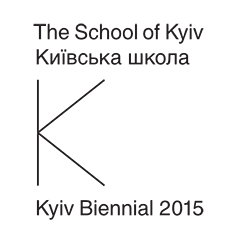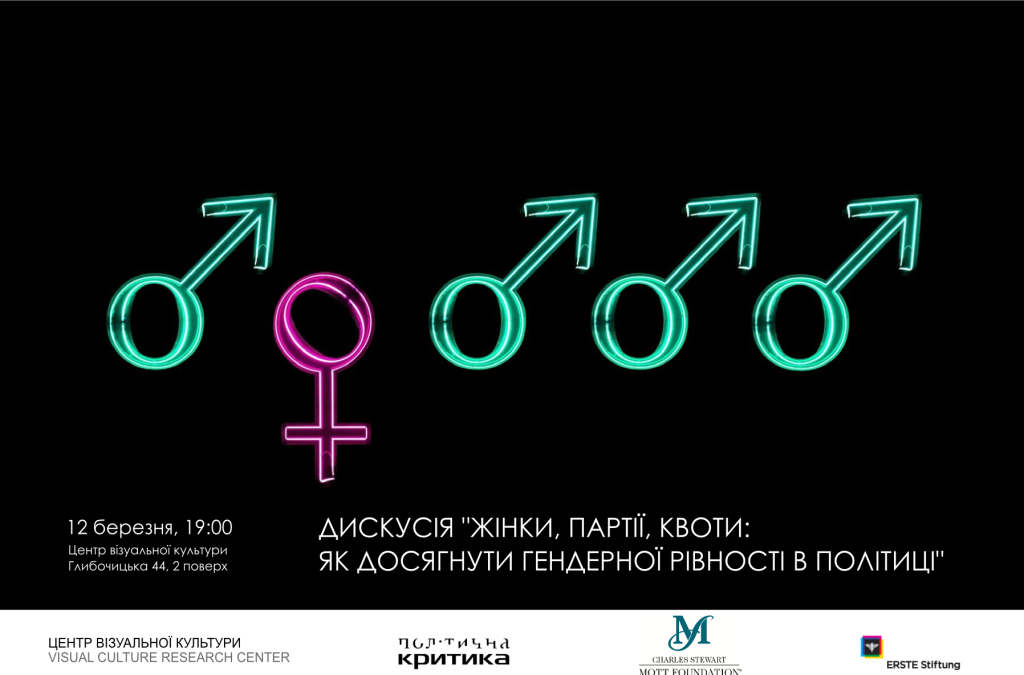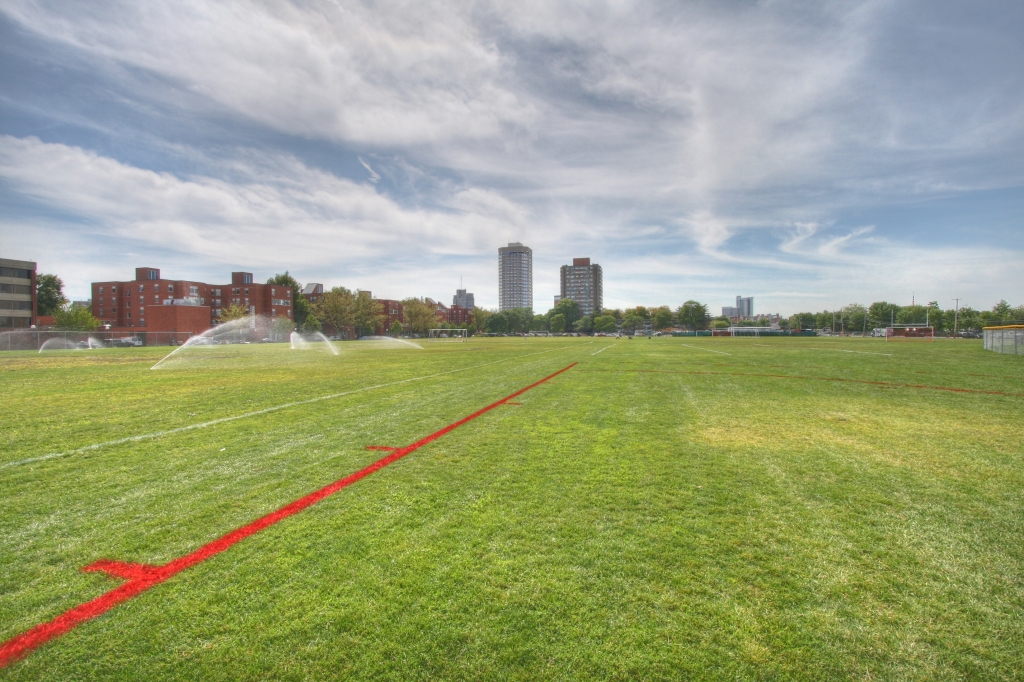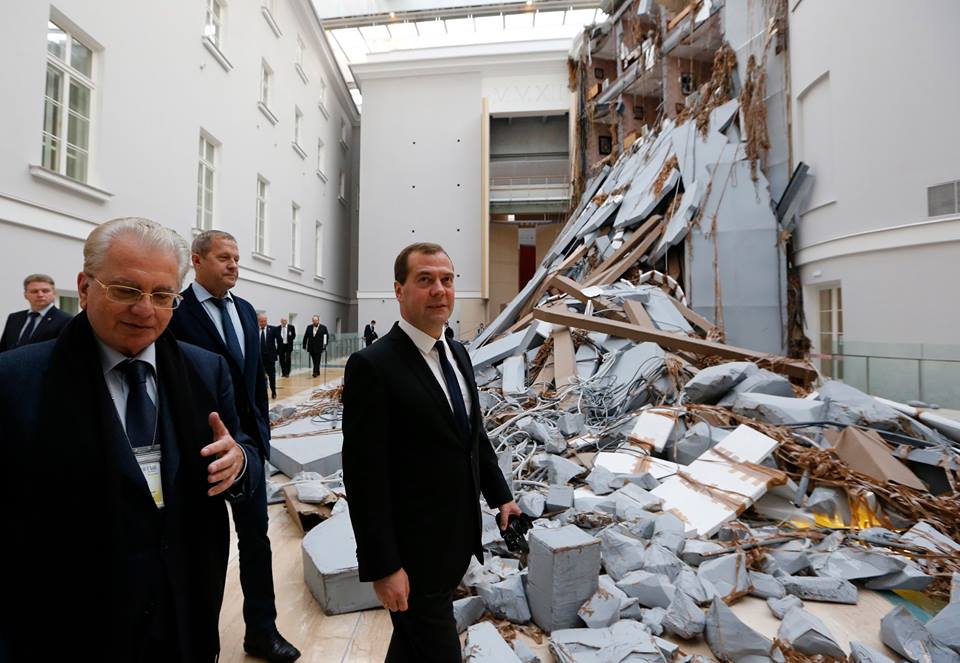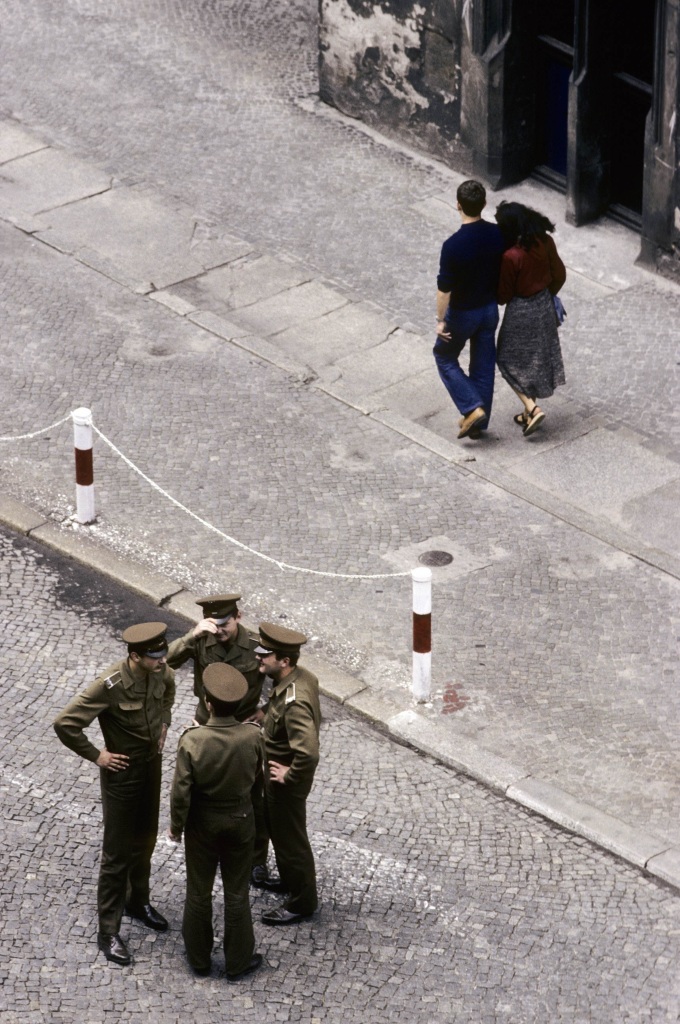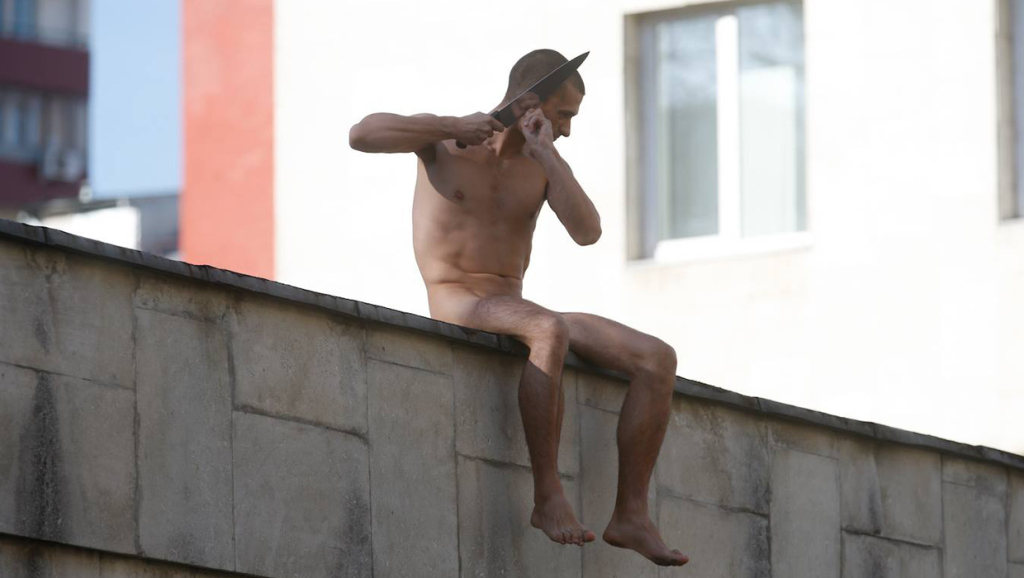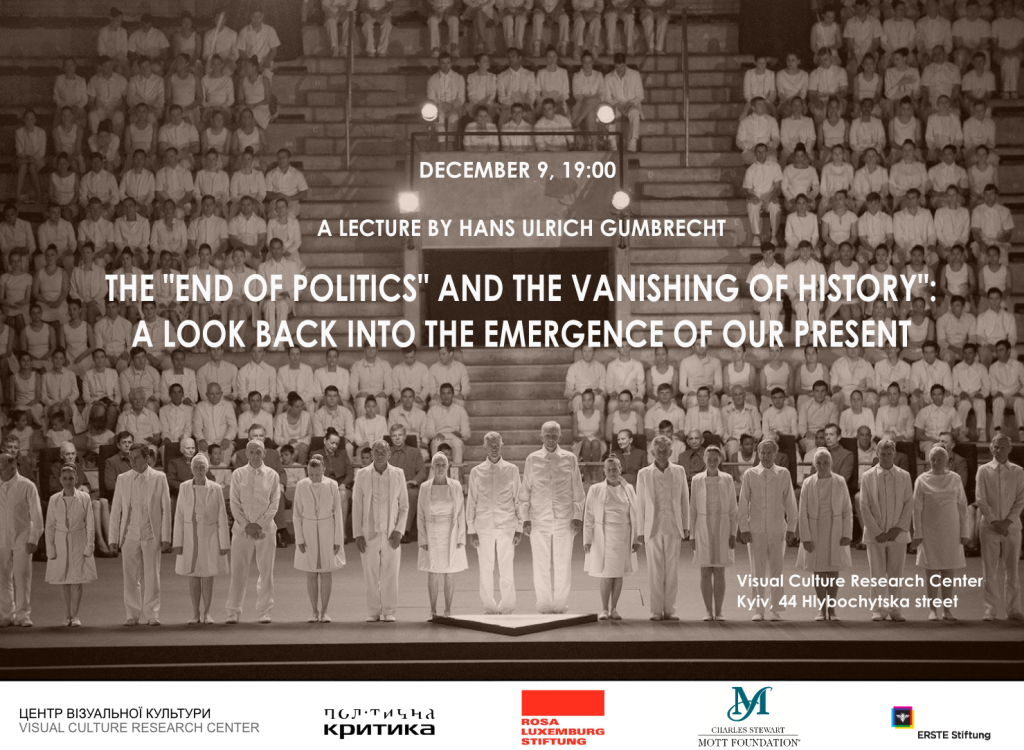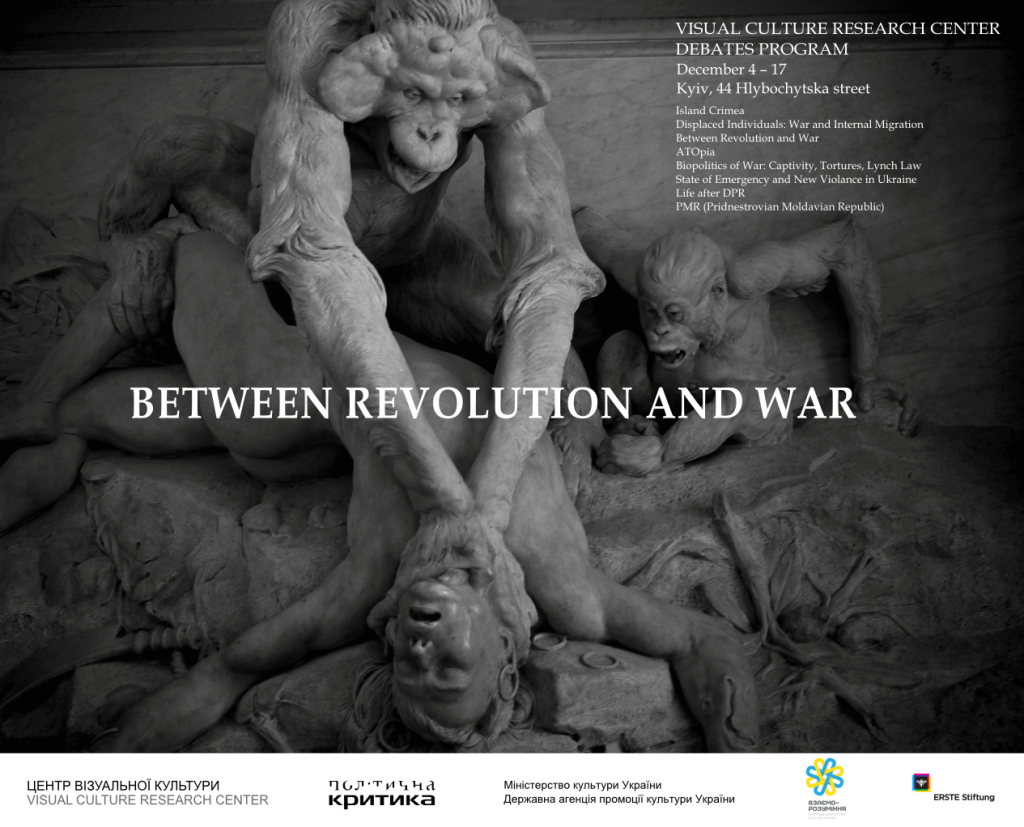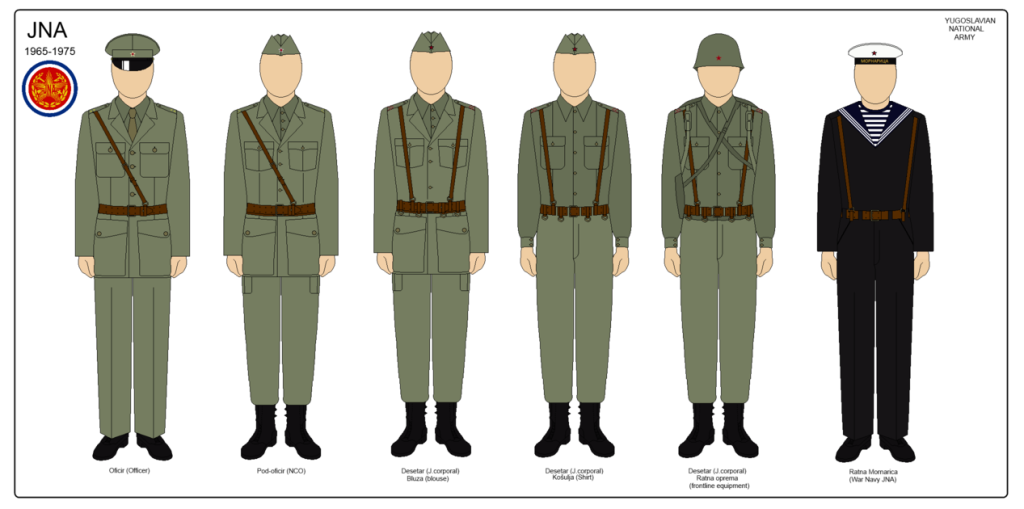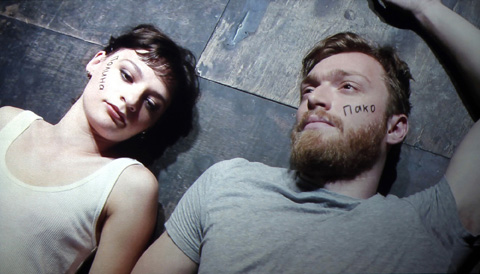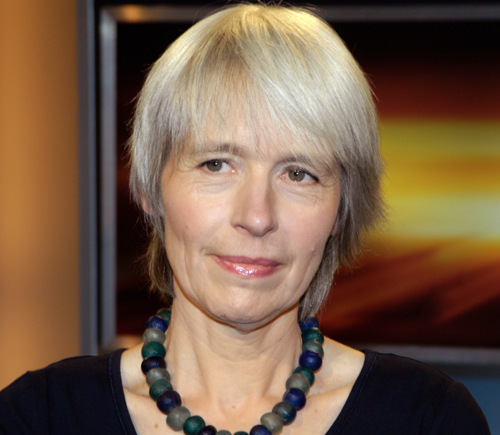Women, Parties, Quotas: How to Achieve Gender Equality in Politics?
Thursday, 12 March 2015, 19:00
Visual Culture Research Center (44 Hlybochytska Street (1st floor), Kyiv)
Visual Culture Research Center and Political Critique invite you to the discussion Women, Parties, Quotas: How to Achieve Gender Equality in Politics?, which will take place on Thursday, 12 March, at 19:00.
In 2015 all Ukrainian authorities had to include not less than 30 % of women. At least these were the liabilities, which Ukraine pledged before the UN. However, currently nearly 90 % of members of our parliament are men. Ukrainian President and some political experts motivate the increase of women in politics for the reason that it will help to «achieve peace, wisdom», to «fight corruption». It seems that our officials lack political will, have no idea about the mechanisms of implementation of such reforms, and even don’t understand the very idea of gender equality, needed for the guarantee of the real access of women to politics and power.
This discussion aims to clarify the purposes for gender equality in governmental bodies, consider the mechanisms of «positive discrimination», implementation of gender quotas, and changes in the election law, and to highlight the relevant experience of reforms in the world.
Participants:
Tamara Martsenyuk is a Doctor of Sociology, Professor at the Sociology Department (National University of Kyiv-Mohyla Academy), who teaches the course Gender and Politics.
Olena Yena is a Senior Manager of Women – leaders program (National Democratic Institute).
Zakhar Popovych is a Doctor of Economics, activist of Left Opposition socialist union, co-author of a draft statute of the party of social revolution, which involves extensive use of gender quotas.
Moderator – Olha Vesnyanka
Admission is free
The discussion will take place within the frameworks of feminist program which will last at VCRC from the 3d until the 19th of March
Supported by ERSTE Stiftung, Charles Stewart Mott Foundation and Heinrich-Böll-Stiftung Ukraine
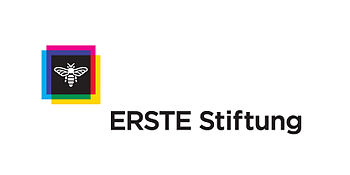
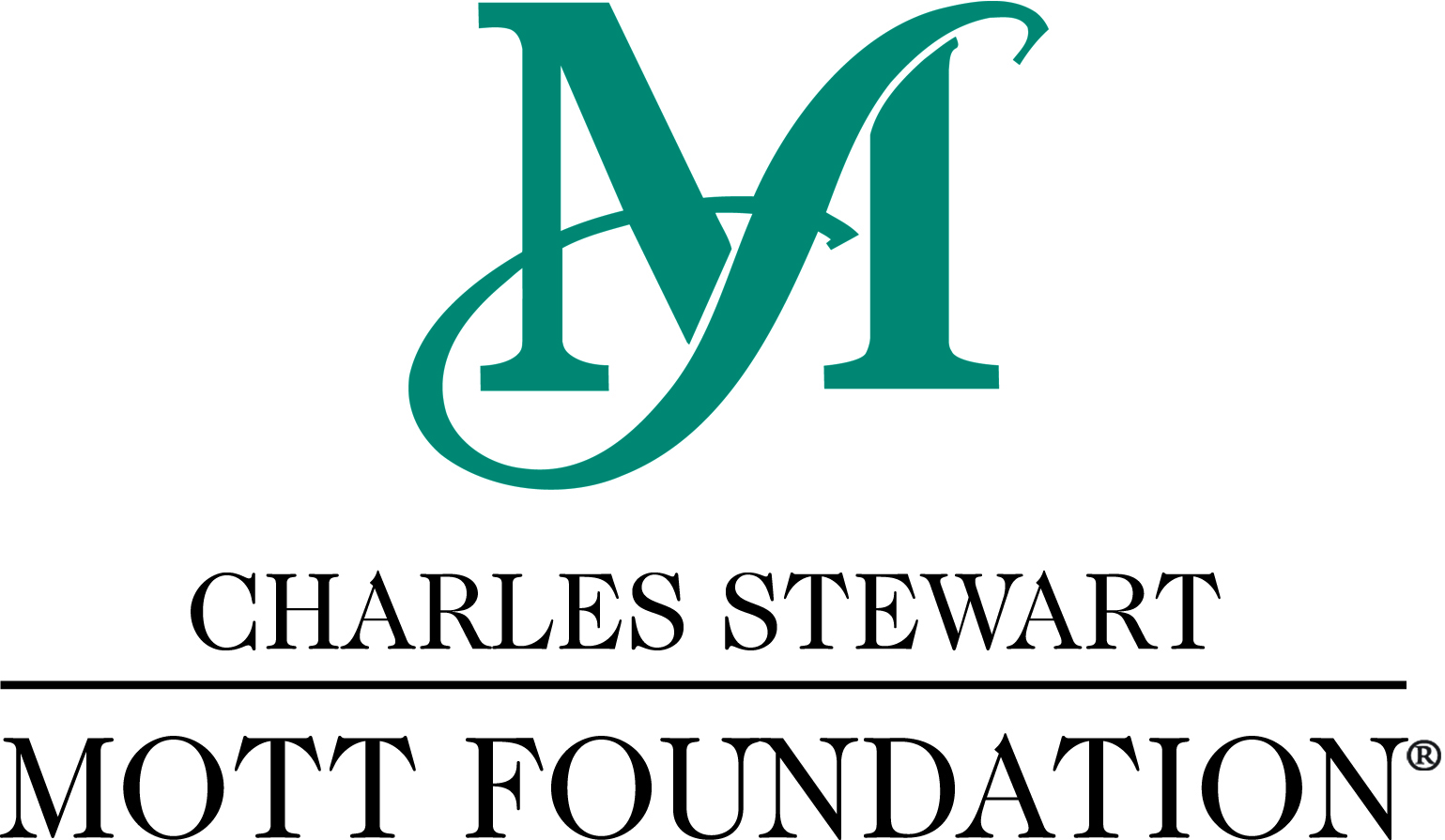
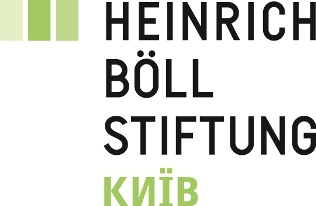
Visual Culture Research Center (VCRC) was founded in 2008 as a platform for collaboration between academic, artistic, and activist communities. VCRC is an independent initiative, which is engaged in publishing and artistic activities, scientific research, organization of public lectures, discussions, and conferences. In 2015 Visual Culture Research Center received the European Cultural Foundation’s Princess Margriet Award.
Contacts:
+380631481204 (Nazariy Sovsun)
www.facebook.com/vcrc.org.ua
vcrc@vcrc.org.ua
Presentation of a book Reflexive Sociology by Pierre Bourdieu and Loic Wacquant
Wednesday, 4 March 2015, 19:00
Visual Culture Research Center (44 Hlybochytska Street (1st floor), Kyiv)
Visual Culture Research Center and Political Critique invite you to the presentation of Ukrainian translation of a book Reflexive Sociology with participation of Anastasia Riabchuk and Yaroslav Hrytsak, which will take place on Wednesday, 4 March, at 19:00.
Reflexive Sociology is the first Ukrainian introduction to the scientific contribution of the most outstanding French sociologist of the 20th century Pierre Bourdieu (1930 – 2002). The book is based on a seminar held at the University of Chicago with the purpose of familiarization of the American public with theoretical and methodological principles of his research. In a dialogue with his student and colleague Loic Wacquant Bourdieu explains the meaning of his key concepts, responds to criticism, and draws special attention to the importance of reflexivity and inclusion of the theory of intellectual practice into wider social theory.
Analyzing his scientific methodology, Bourdieu makes a set of conclusions about political and emancipatory potential of social sciences and its confines, role of intellectuals in the reproduction of symbolic violence and instruments of struggle against it, reflects on the problem of determinacy of “free choice” and possibilities of the extension of freedom.
The book will be presented by its translator Anastasia Riabchuk and historian Yaroslav Hrytsak.
Anastasia Riabchuk is a sociologist and teacher at the Department of Sociology (Kyiv-Mohyla Academy). She is also a fellow researcher at the Department of Social Change (University of Johannesburg).
Yaroslav Hrytsak is a historian and publicist, Professor of History (Ukrainian Catholic University), Senior Editor of Ukraina Moderna journal.
Moderator – Lesia Kulchynska
Admission is free
Organization partner – MEDUSA Publishing House
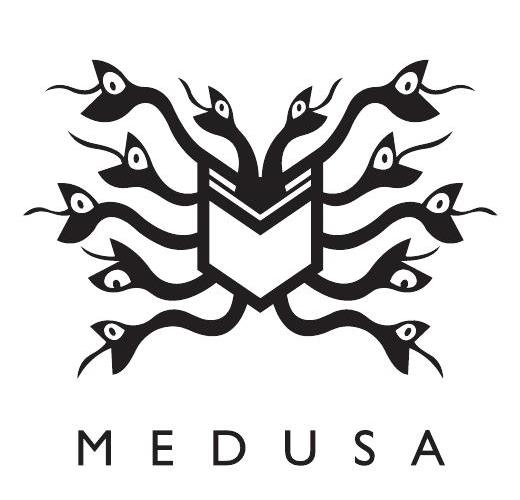
Supported by ERSTE Foundation and Charles Stewart Mott Foundation


Visual Culture Research Center (VCRC) was founded in 2008 as a platform for collaboration between academic, artistic, and activist communities. VCRC is an independent initiative, which is engaged in publishing and artistic activities, scientific research, organization of public lectures, discussions, and conferences. In 2015 Visual Culture Research Center was awarded the European Cultural Foundation’s Princess Margriet Award.
Contacts:
+38096 4929600 (Nataliya Neshevets)
www.facebook.com/vcrc.org.ua
vcrc@vcrc.org.ua
Lecture by Ekaterina Degot: Contemporary Art and Critical Thinking
Sunday, December 21st, 18:00
Visual Culture Research Center (44 Hlybochytska Street, Kyiv)
Visual Culture Research Center and Political Critique invite you to the lecture by Ekaterina Degot, which will take place on Sunday, December 21st, at 18:00.
In summer 2014 curator and essayist Ekaterina Degot criticized system of contemporary art, which has served as shelter for critical thinking for a long time. According to Degot, association between contemporary art and critical thinking has crashed. This year’s MANIFESTA, which was held in Russia in the midst of Russian military aggression in Ukraine, is one of the symptoms of this collapse. In her lecture Ekaterina Degot will speak about the influence of oligarchic and state structures on the system of contemporary art. Proceeding from the question “what went wrong in the 1990s?”, she will analyze the influence of imperial thinking on contemporary Russian art.
Ekaterina Degot is a curator, essayist, and art historian. She is also an Artistic Director of The Academy of the Arts of the World (Cologne). Among her books: Terrorist Naturalism and Russian Art of the 20th Century. In 2013 she was a curator of the first Bergen Triennale. In 2014 she received Igor Zabel Award for Culture and Theory.
Further readings:
Ekaterina Degot. A Text That Should Never Have Been Written?
Ekaterina Degot. The List of Failures.Speech at Igor Zabel Award Ceremony.
Admission is free
The event will take place within the framework of “Between Revolution and War” project supported by Rosa Luxemburg Stiftung
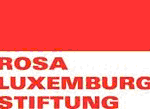
Supported by ERSTE Foundation and Charles Stewart Mott Foundation


Visual Culture Research Center (VCRC) is a platform for collaboration of artists, activists and academics founded in Kyiv-Mohyla Academy in 2008. Since its inception VCRC had organized over 100 debates, conferences and research seminars, nearly 20 exhibitions and a series of street protest actions.
Contacts:
+38097 436 98 99 (Yustyna Kravchuk)
www.facebook.com/vcrc.org.ua
vcrc@vcrc.org.ua
Marci Shore. Living in Truth: Or, the Uses and Disadvantages of History for Life
Friday, December 19th, 19:00
Visual Culture Research Center (44 Hlybochytska Street, Kyiv)
Visual Culture Research Center and Political Critique invite you to the lecture by an American historian Marci Shore, which will take place on Friday, December 19th, 19:00.
In her lecture Marci Shore will return to some of the metaphysical questions about subjectivity and responsibility once posed by East European dissidents in an attempt to illuminate some of the more essential questions revealed by a wrenching past. This lecture will explore the disenchantment with post-communism, the afterlife of totalitarianism, and the dilemmas of subjectivity—for Marx, for Havel’s greengrocer and Poland’s Solidarność, and on the Maidan.
Marci Shore: “A specter is haunting Europe—the specter of communism,” Marx and Engels wrote in 1848. Over a century and a half later, communism is no less haunting as a specter from the past. For many years the communist archives played the role of the Freudian unconscious: that dark psychic closet into which everything too disturbing for the conscious mind was thrown. The process of “accounting with the past” as an attempt above all to distinguish guilt from innocence has often blinded us to the deeper and more essential questions revealed by that past.
Marci Shore is a Professor of History at Yale University. She teaches European cultural and intellectual history. She is the author of the books The Taste of Ashes: The Afterlife of Totalitarianism in Eastern Europe and Caviar and Ashes: A Warsaw Generation’s Life and Death in Marxism, 1918-1968. Currently she is at work on a book project titled “Phenomenological Encounters: Scenes from Central Europe”, in which she will explore phenomenological aspects of Maidan protest.
The lecture will be held in English
Admission is free
Visual Culture Research Center (VCRC) is a platform for collaboration of artists, activists and academics founded in Kyiv-Mohyla Academy in 2008. Since its inception VCRC had organized over 100 debates, conferences and research seminars, nearly 20 exhibitions and a series of street protest actions.
Contacts:
+38097 436 98 99 (Yustyna Kravchuk)
www.facebook.com/vcrc.org.ua
vcrc@vcrc.org.ua
Pyotr Pavlensky. Bureaucratic Convulsion: On the New Economy of Political Art
Sunday, December 14th, 18:00
Visual Culture Research Center (44 Hlybochytska Street (1st floor), Kyiv)
Visual Culture Research Center and Political Critique invite you to visit the lecture by Pyotr Pavlensky, which will take place on Sunday, December 14th, at 18:00.
Over the last few years performance artist Pyotr Pavlensky became one of the most outstanding representatives of Russian radical art, which fulfills the function of uncompromising critique of the regime, while political opposition in Russia is missing. Such public artistic actions by Pyotr Pavlensky, as Carcass, Fixation, Liberty, and Separation have shocked Russian society and questioned its ability to resist the authorities. In his lecture, Pyotr Pavlensky will speak about the artistic strategies of finding a way out in a political dead end. How to ruin the decorative superstructure, which conceals the violence of the state apparatus, with its own hands? How to use the instruments of the regime against itself?
Pyotr Pavlensky is a Russian performance artist, author of radical actions in the public space. Editor of Political Propaganda magazine and publishing house of the same name. Lives and works in Saint-Petersburg.
Admission is free
The event will take place within the framework of “Between Revolution and War” project supported by Rosa Luxemburg Stiftung

Supported by ERSTE Foundation and Charles Stewart Mott Foundation


Visual Culture Research Center (VCRC) is a platform for collaboration of artists, activists and academics founded in Kyiv-Mohyla Academy in 2008. Since its inception VCRC had organized over 100 debates, conferences and research seminars, nearly 20 exhibitions and a series of street protest actions.
Contacts:
+38097 436 98 99 (Yustyna Kravchuk)
www.facebook.com/vcrc.org.ua
vcrc@vcrc.org.ua
A lecture by Hans Ulrich Gumbrecht. The “End of Politics” and the “Vanishing of history”: A Look Back into the Emergence of Our Present
Tuesday, December 9th, 2014, 19:00
Visual Culture Research Center (44 Hlybochytska Street (1st floor), Kyiv)
Visual Culture Research Center and Political Critique invite you to the lecture by an American philosopher and cultural historian Hans Ulrich Gumbrecht, which will take place on Tuesday, December 9th, 2014, at 19:00.
The past few years have produced an increased number of events and situations suggesting that we may have arrived at a “vanishing point of history” and, therefore, at an “end of politics.” Instead of repeating the familiar argumentative turn of denying the value of such impressions and of their radical interpretation, this lecture will try to confirm and to explain the ends of history and of politics in our present, based on a historicization of the concept of “history”. It will thus arrive at a description of the present that offers fresh analytic perspectives and perhaps even some starting points for post-historical and post-political solutions of problems that we have been obsessed with for a long time.
Hans Ulrich Gumbrecht – American philosopher, cultural historian, and literary theoretician, Professor at Stanford University. He is famous for his books In 1926: Living at the Edge of Time, The Production of Presence: What Meaning Cannot Convey, and numerous texts on western philosophical tradition and history of humanities. In addition, he studies media and mass culture, aesthetics and epistemology of every-day life, histories of European literatures. His book In Praise of Athletic Beauty was published in Ukrainian.
The lecture will be held in English
Admission is free
The event will take place within the framework of “Between Revolution and War” project supported by Rosa Luxemburg Stiftung

Supported by ERSTE Foundation and Charles Stewart Mott Foundation


Visual Culture Research Center (VCRC) is a platform for collaboration of artists, activists and academics founded in Kyiv-Mohyla Academy in 2008. Since its inception VCRC had organized over 100 debates, conferences and research seminars, nearly 20 exhibitions and a series of street protest actions.
Visual Culture Research Center (44 Hlybochytska Street, Kyiv)
Contacts:
+38097 436 98 99 (Yustyna Kravchuk)
www.facebook.com/vcrc.org.ua
vcrc@vcrc.org.ua
Debates Program “Between Revolution and War”
December 4th – 17th, 2014
Visual Culture Research Center and Political Critique invite you to the series of discussions and screenings “Between Revolution and War”, which will take place from the 4th until the 16th of December, 2014.
During the situation of war conflict, when radical attitudes and hostility grow within the society and the degree of hate speech increases, there is a need for critical thinking and de-ideologized perspective on the reality. The project focuses on the functioning of public institutions in the revolutionary situation, in the conditions of war and occupation, as well as on the connections between symbolic and real violence and its influence on political processes in Ukrainian society after Maidan. Through the implementation of discursive, visual and media instruments the project opposes to the rhetoric of violence and seeks for the strategies of inclusion of emancipatory potential of Maidan into the structural changes of Ukrainian society.
December 4th, 19:00 – Island Crimea
December 5th, 19:00 – Displaced Individuals: War and Internal Migration
December 7th, 17:00 – ATOpia
December 11th, 19:00 – Biopolitics of War: Captivity, Tortures, Lynch Law
December 12th, 19:00 – Nataliya Gumenyuk. “Life after DPR”. Screening and discussion
December 13th, 17:00 – State of Emergency and New Violence in Ukraine
December 16th, 19:00 – PMR (Pridnestrovian Moldavian Republic)
December 17th, 19:00 – Between Revolution and War
Admission is free
Events will take place within the framework of “Mutual Understanding” program supported by Ministry of Culture of Ukraine and State Agency for Promotion of Culture of Ukraine
![]()
Visual Culture Research Center (VCRC) is a platform for collaboration of artists, activists and academics founded in Kyiv-Mohyla Academy in 2008. Since its inception VCRC had organized over 100 debates, conferences and research seminars, nearly 20 exhibitions and a series of street protest actions.
Visual Culture Research Center (44 Hlybochytska Street, Kyiv)
Contacts:
+38097 436 98 99 (Yustyna Kravchuk)
https://www.facebook.com/vcrc.org.ua
vcrc@vcrc.org.ua
Boris Buden. Some Parallels between the Violent Breakup of Yugoslavia and Today’s Ukrainian Crisis
Saturday, November 29th, 16:00 – 21:00
Visual Culture Research Center (44 Hlybochytska Street (1st floor), Kyiv)
Visual Culture Research Center and Political Critique invite you to the workshop and lecture by a writer Boris Buden (Berlin), who will talk about the war and the collapse of Yugoslavia in the 1990s in the light of the current Ukrainian crisis.
On the 29th of December, at 19:00 Boris Buden will deliver a lecture on topic “Europe in Translation: The Limits of a Promise”:
“To fulfill the ideal of unity in its linguistic praxis, the European Union has developed a politics of translation that is based on the principle of equality among all its languages regardless of their cultural importance or size. Yet when it comes to its outer limits this politics turns into its opposite, creating inequalities and violently disrupting existing linguistic continuities. Where is the problem? In the concept of translation!”
Admission is free
On the 29th of November, at 16:00 Boris Buden will also hold a workshop on topic “Some parallels between the violent breakup of Yugoslavia and today’s Ukrainian crisis”:
“History never repeats but sometimes a comparison of two events separated by decades discloses remarkable similarities and continuities: falling apart of a society along cultural divides, mobilization of the past in current struggles, the promise of European integration, irreversibility of violent transformations, etc. What Giorgio Agamben argued about the dissolution of Yugoslavia seems to fully apply to what is taking place today in Ukraine: there will never be a return to normality and restoration of the old social contract. Instead, a violently created state of exception will turn into a permanent condition and even spread all over the globe”.
Recommended readings:
James Graham: The Violent Breakup of Yugoslavia
http://www.historyorb.com/europe/yugoslavia.php
Boris Buden: Saving Private Havel (1999).
Boris Buden: Red Velvet, in Manifesta Journal 18
http://www.manifestajournal.org/issues/situation-never-leaves-our-waking-thoughts-long/red-velvet
To participate in the workshop, you should register by e-mail: vcrc@vcrc.org.ua.
Boris Buden – writer, critic, translator. He received his PhD in Cultural Theory from Humboldt University of Berlin. Member of the Institute for Progressive Cultural Policies (Vienna). His book Zone of Transition: On the End of Post-communism was published in Ukrainian.
The event will take place within the framework of “Between Revolution and War” project with support from Rosa Luxemburg Stiftung (Germany)

With support from ERSTE Foundation (Austria)

Contacts:
+38 096 492 96 00 (Natalia Neshevets)
www.facebook.com/vcrc.org.ua
vcrc.org.ua
vcrc@vcrc.org.ua
Love Machines: Keti Chukhrov Will Present Her New Film in Kyiv
Thursday, November 27th, 19:00
Visual Culture Research Center (44 Hlybochytska Street (1st floor), Kyiv)
Visual Culture Research Center and Political Critique invite you to the meeting with a poet and playwright Keti Chukhrov (Moscow), who will present her new film Love Machines on Thursday, November 27th at 19:00.
In 2013 Keti Chukhrov created her first film Love Machines based on the same-name play. Keti Chukhrov calls her film, which was shot in the stylistics of television spectacle, “one of the possible stagings of the original play”. The film Love Machines examines a shift of contemporary culture towards post-human condition with its negation of human community, love, solidarity, grief, and other forms of collective sensibility. An artist Arseniy Zhilyaev (Moscow) and poet Dina Gatina (Saint-Petersburg) play main parts in the film.
Keti Chukhrov – poet, playwright, essayist. She has authored numerous plays, as well as publications on philosophy and art theory. Among her books – To Be and to Perform. The Concept of “Theatre” in Philosophical Criticism of Art (2011), Just People (2010). Doctor of Philosophy, Professor at the Department of Art History at the Russian State University for the Humanities. Head of the Research and Information Department at the State Center for Contemporary Art (Moscow).
After the screening a discussion with the author will take place (moderation – Oleksiy Radynski).
Admission is free
ATTENTION! Seats are limited
The event will take place within the framework of “Between Revolution and War” project with support from Rosa Luxemburg Stiftung (Germany)

With support from ERSTE Foundation (Austria)

Contacts:
+38 067 442 23 89 (Oleksiy Radynski)
www.facebook.com/vcrc.org.ua
vcrc.org.ua
vcrc@vcrc.org.ua
Katharina Raabe. End of the “Deep Concern”: Ukrainian Topic in Germany
Saturday, November 22nd, 2014, 18:00
Visual Culture Research Center (44 Hlybochytska Street (1st floor), Kyiv)
End of the “Deep Concern”:
Ukrainian Topic in Germany
Meeting with the editor of Suhrkamp publishing house Katharina Raabe
Visual Culture Research Center and Political Critique invite you to the meeting with German author and publisher Katharina Raabe, which will take place on Saturday, November 22nd at 18:00.
Events of the last year in Ukraine have influenced political consensus of Europe, as well as its intellectual life. In Germany, whose humanitarian politics is largely focused on the Eastern Europe, appeared public intellectuals, who “understand Putin”, on the one hand, and “discoverers of Ukraine” – on the other. In German public sphere “Ukrainian crisis” became not only subject to numerous media debates and political speculations, but also reason for redefining the experience of division, “reunion”, revolution, and civil resistance, particularly, in the context of recent 25th Anniversary of the Fall of the Berlin Wall. How does Ukraine arise in the German intellectual and media discourses? Who are Ukrainian public intellectuals in Germany? Which narratives are dominant in the public sphere?
Katharina Raabe – editor of one of the biggest German publishing houses Suhrkamp. In 2007 Katharina Raabe, who revealed Yuriy Andrukhovych, Serhij Zhadan, Lyubko Deresh, and Katia Petrovska to the German speaking world, received Order of Merit of the Federal Republic of Germany for her promotion of Eastern European literature in Germany. Besides numerous publications of Ukrainian authors, Katharina’s newest book is “Euromaidan: What is at Stake in Ukraine”. At the moment she works on the book “Ukraine, Russia, and Europe”.
Visual Culture Research Center (VCRC) was founded in 2008 for the purpose of creating the interdisciplinary platform for analysis of the Ukrainian post Soviet condition at the intersection of art, knowledge, and politics. Since its inception VCRC has organized over 150 debates, conferences and seminars with the participation of Ukrainian and international researchers, as well as nearly 20 art exhibitions.
Visual Culture Research Center (44 Hlybochytska Street, Kyiv)
Admission is free
Organization partner – Krytyka Polityczna
Visual Culture Research Center works with support from ERSTE Foundation (Austria)
Information partner:
Contacts:
+38097 436 98 99 (Yustyna Kravchuk)
vcrc@vcrc.org.ua
www.facebook.com/vcrc.org.ua

